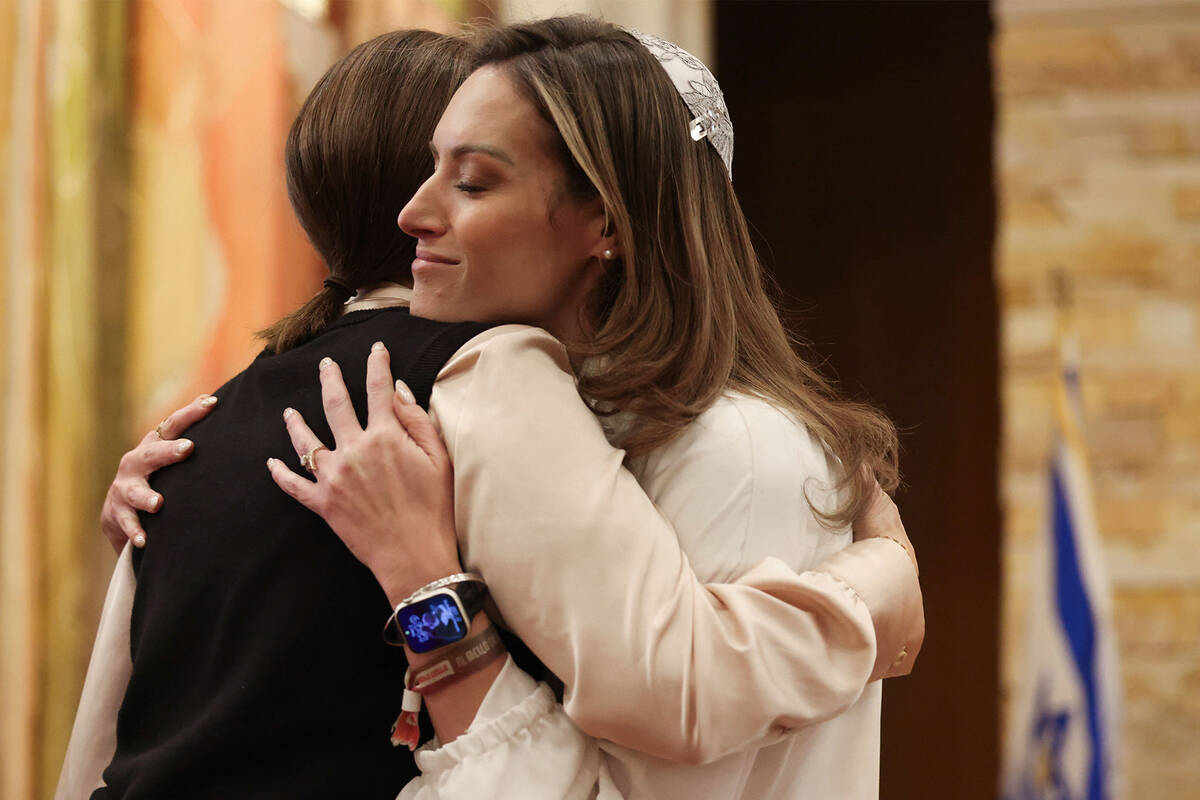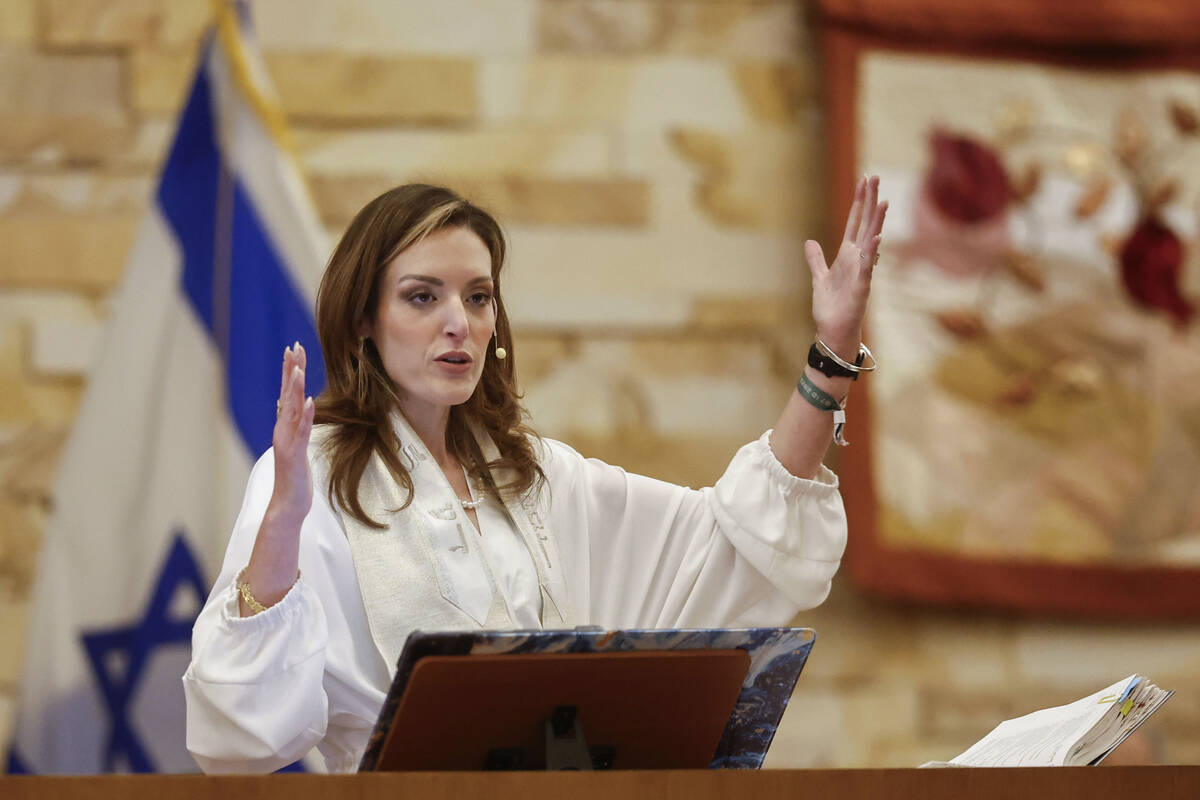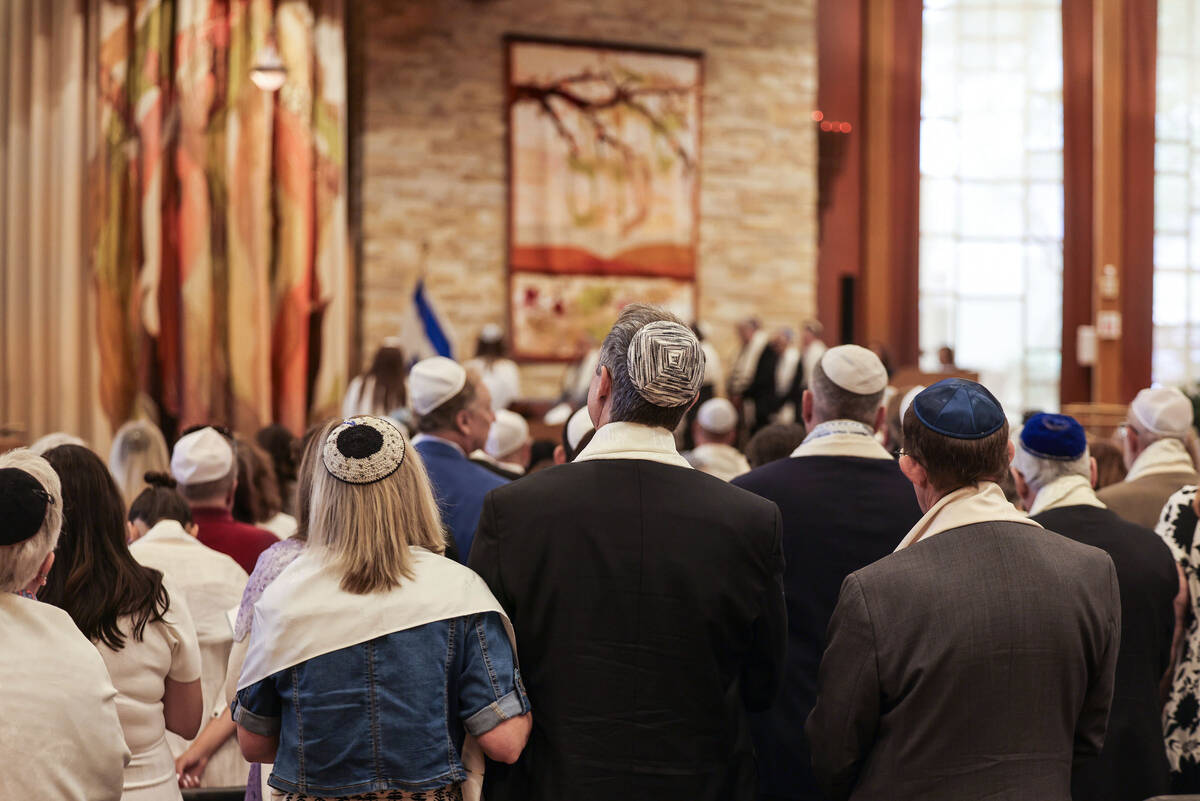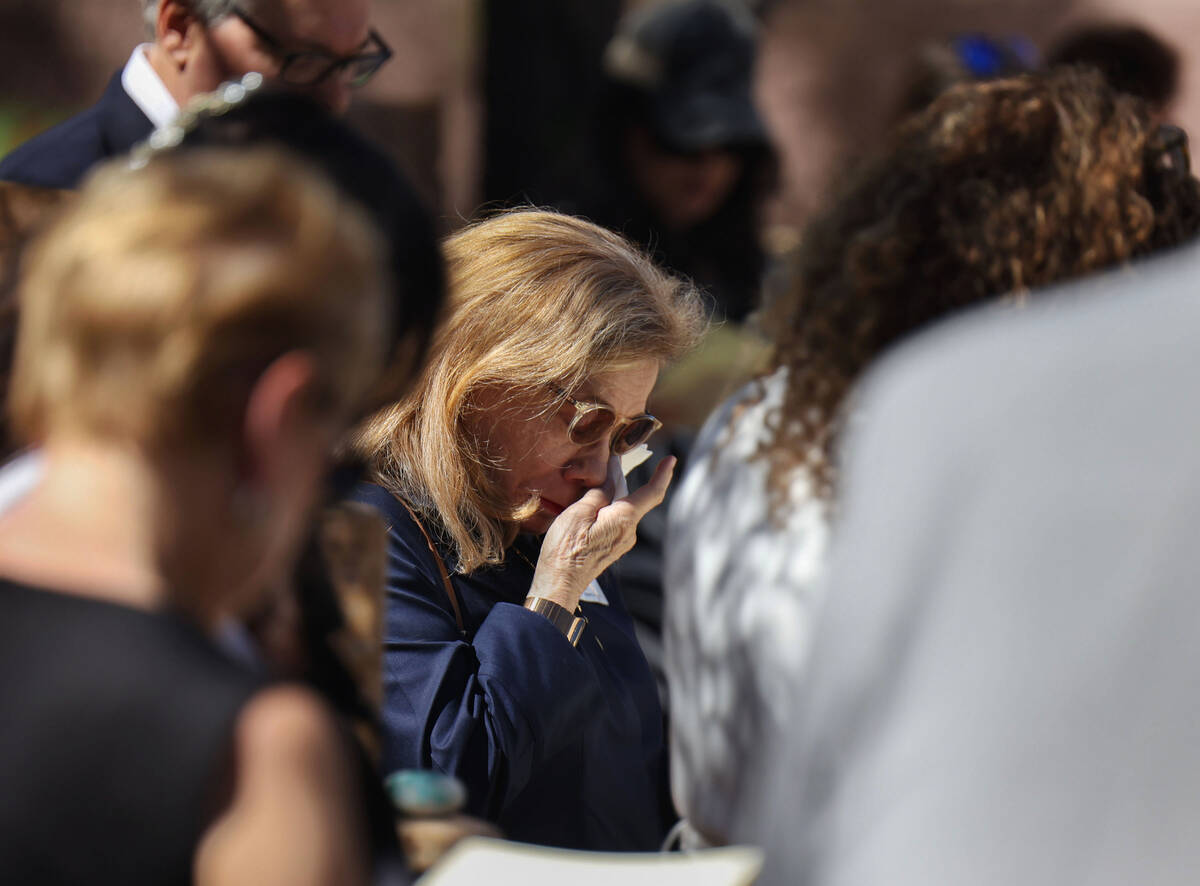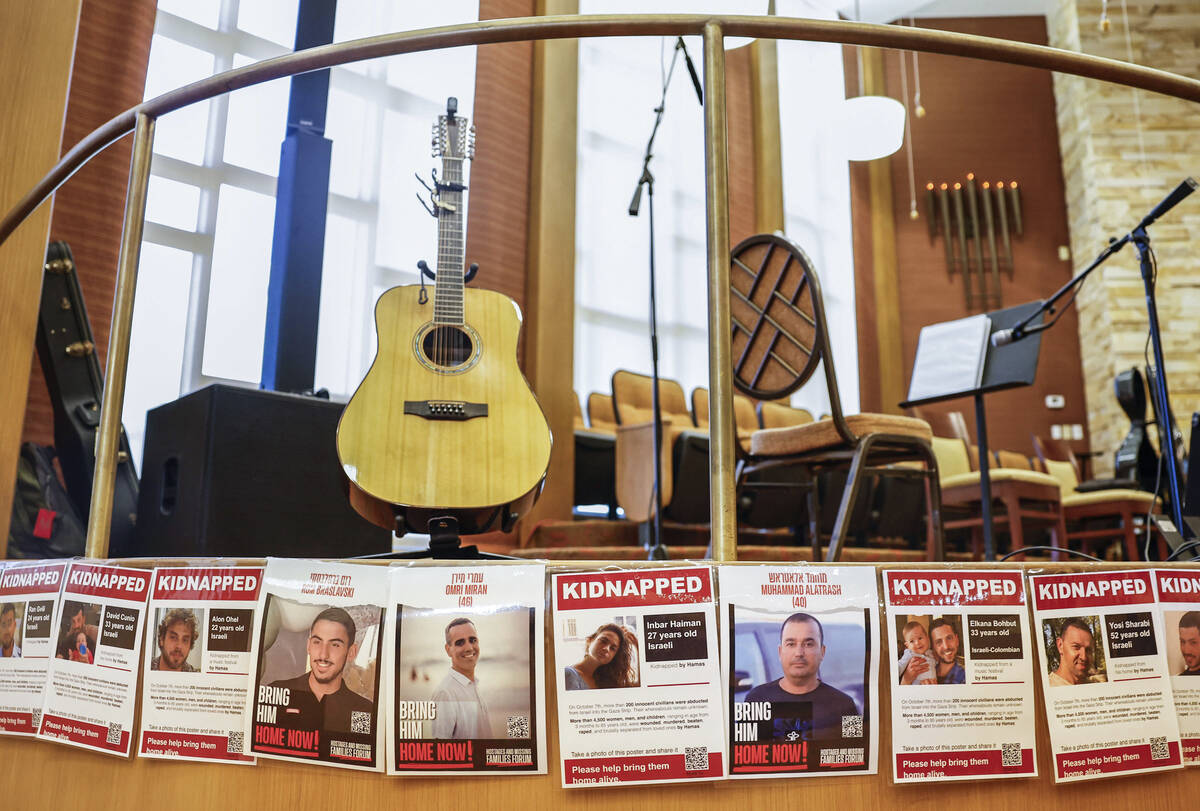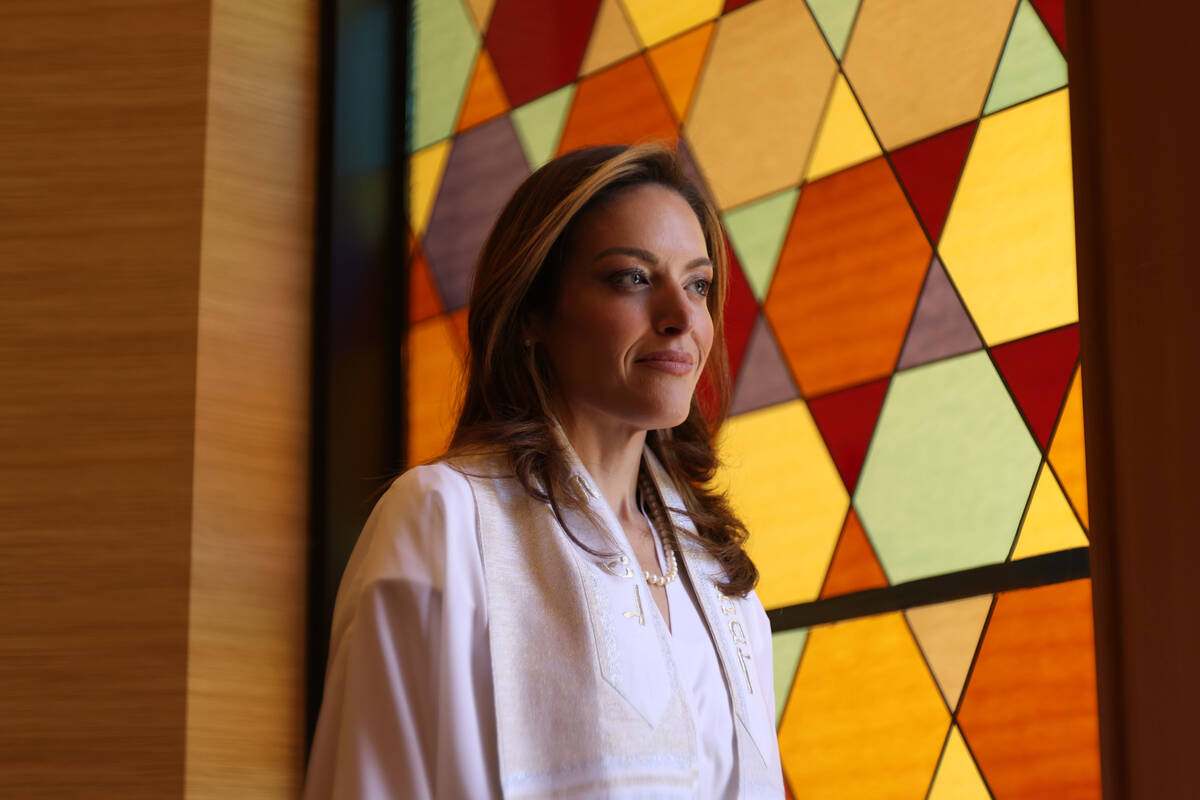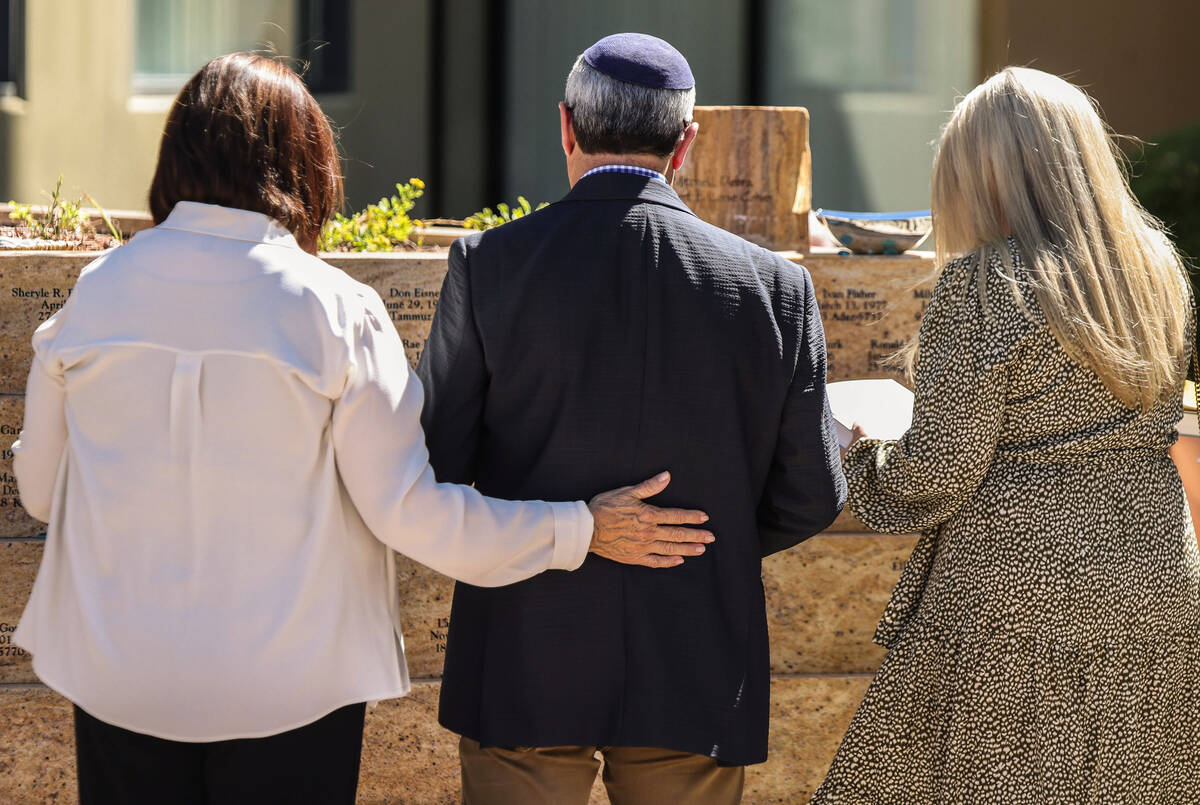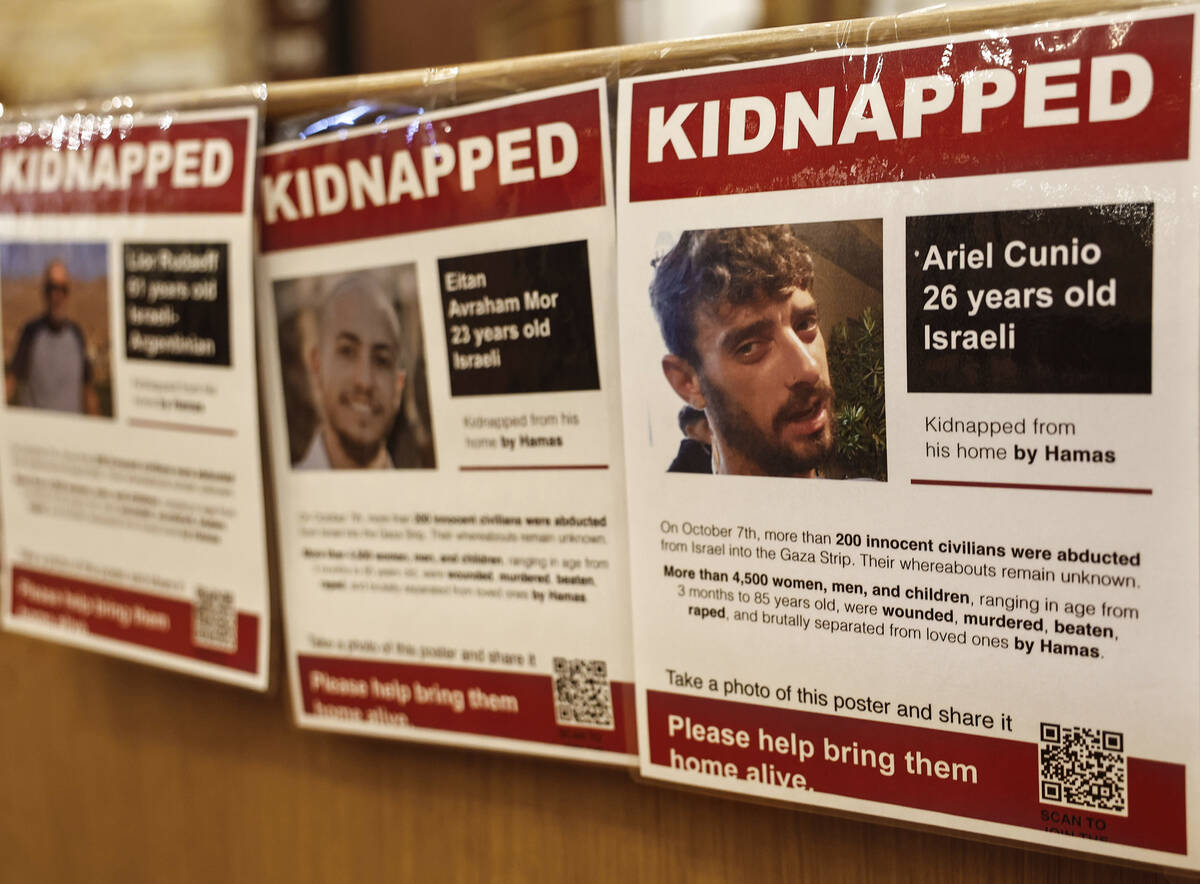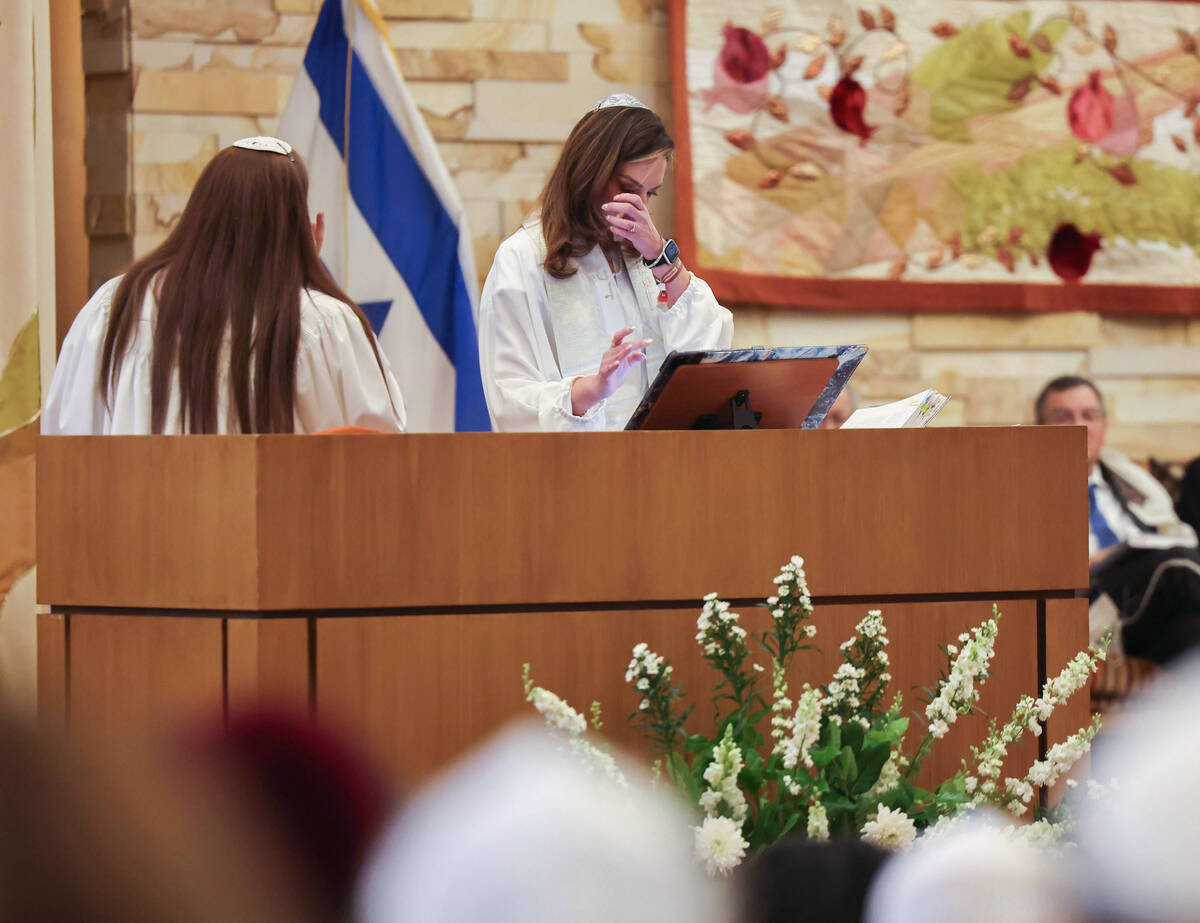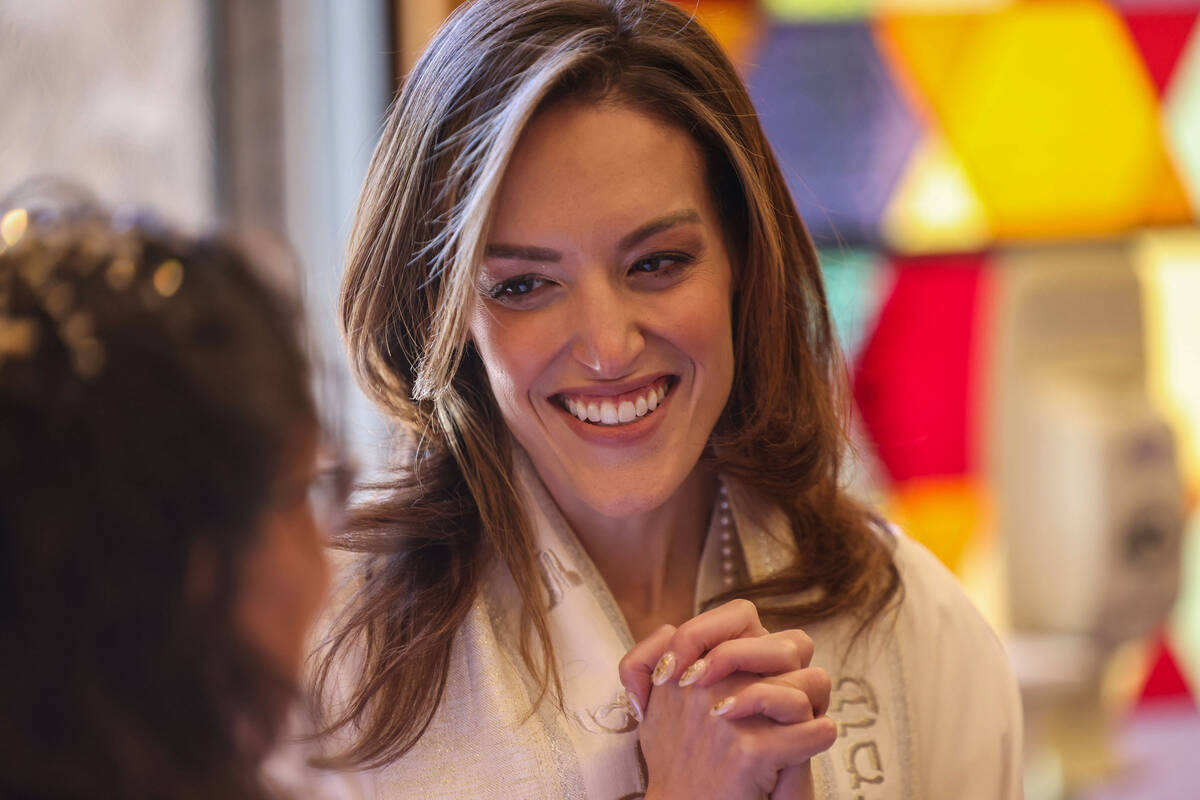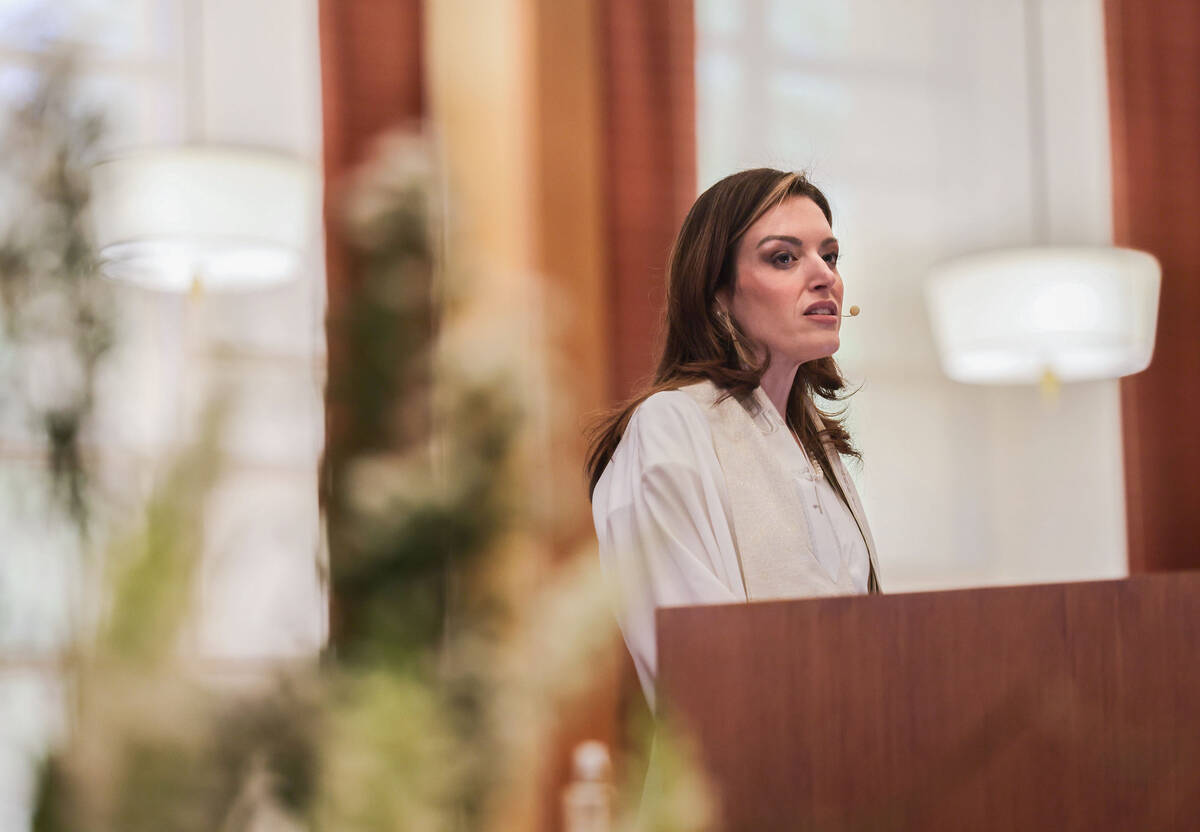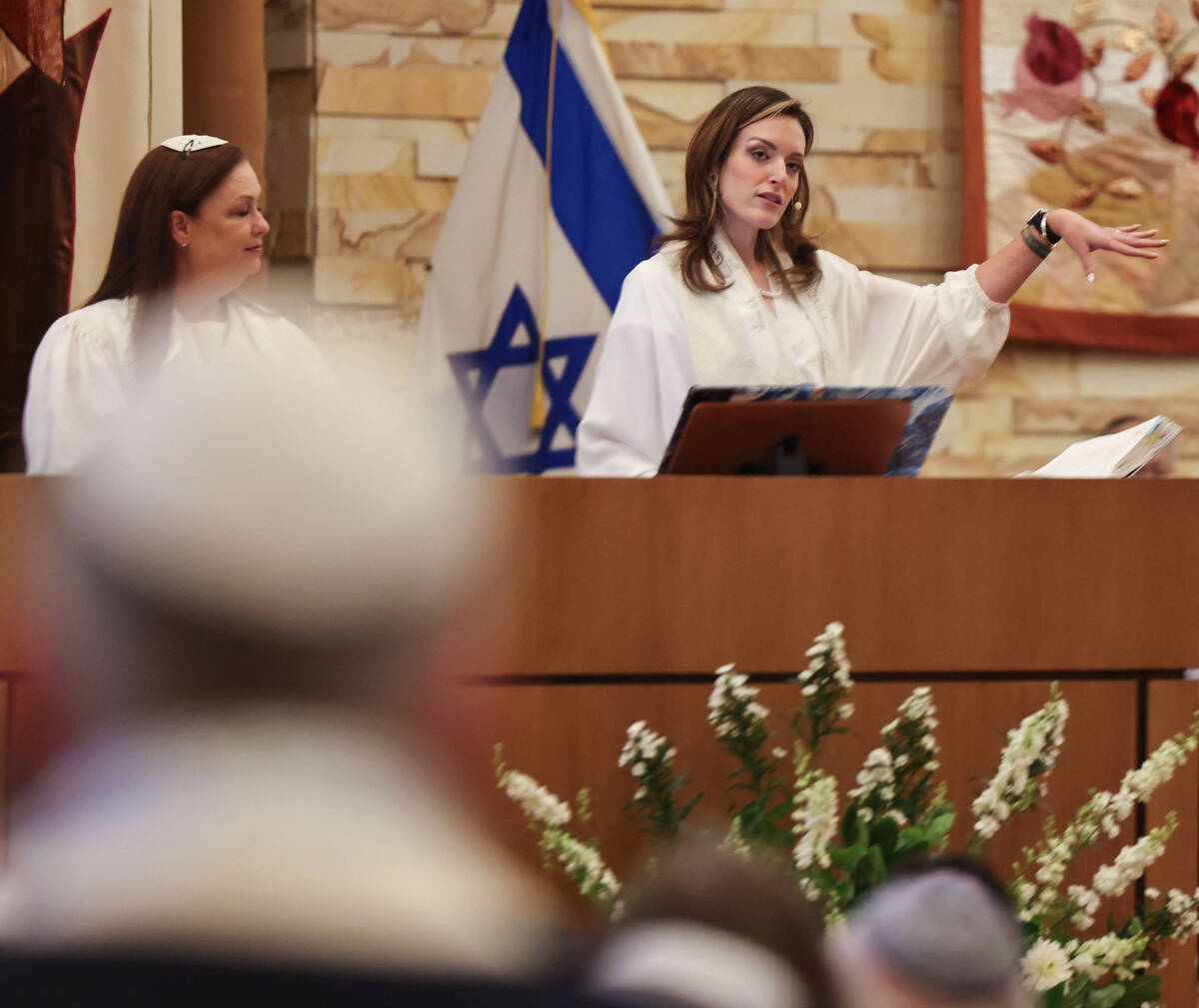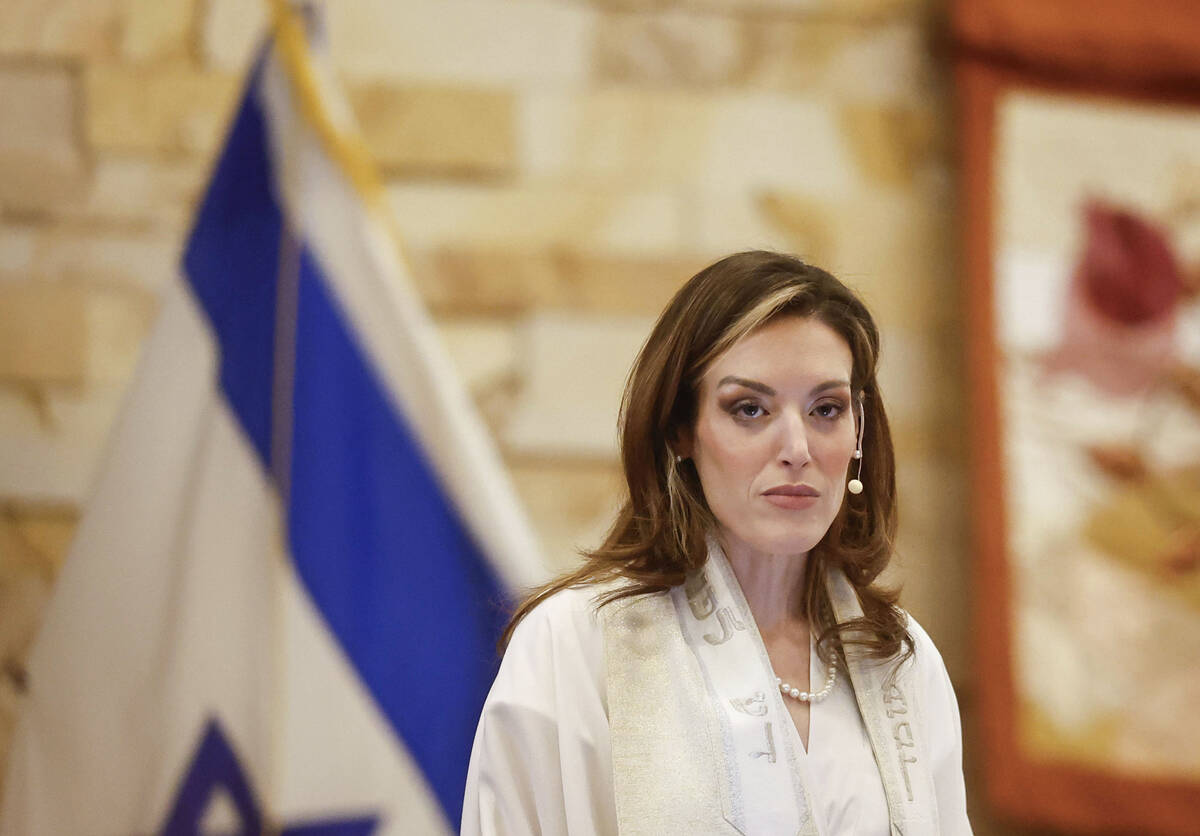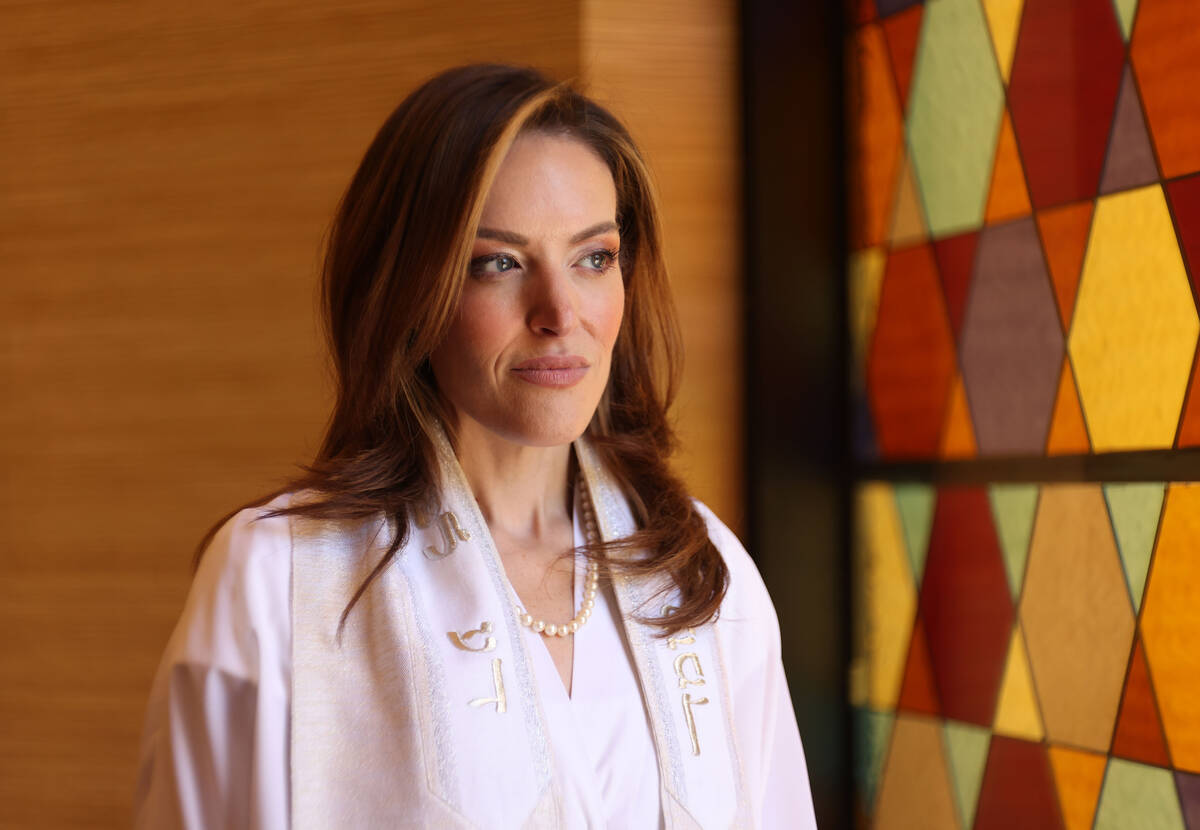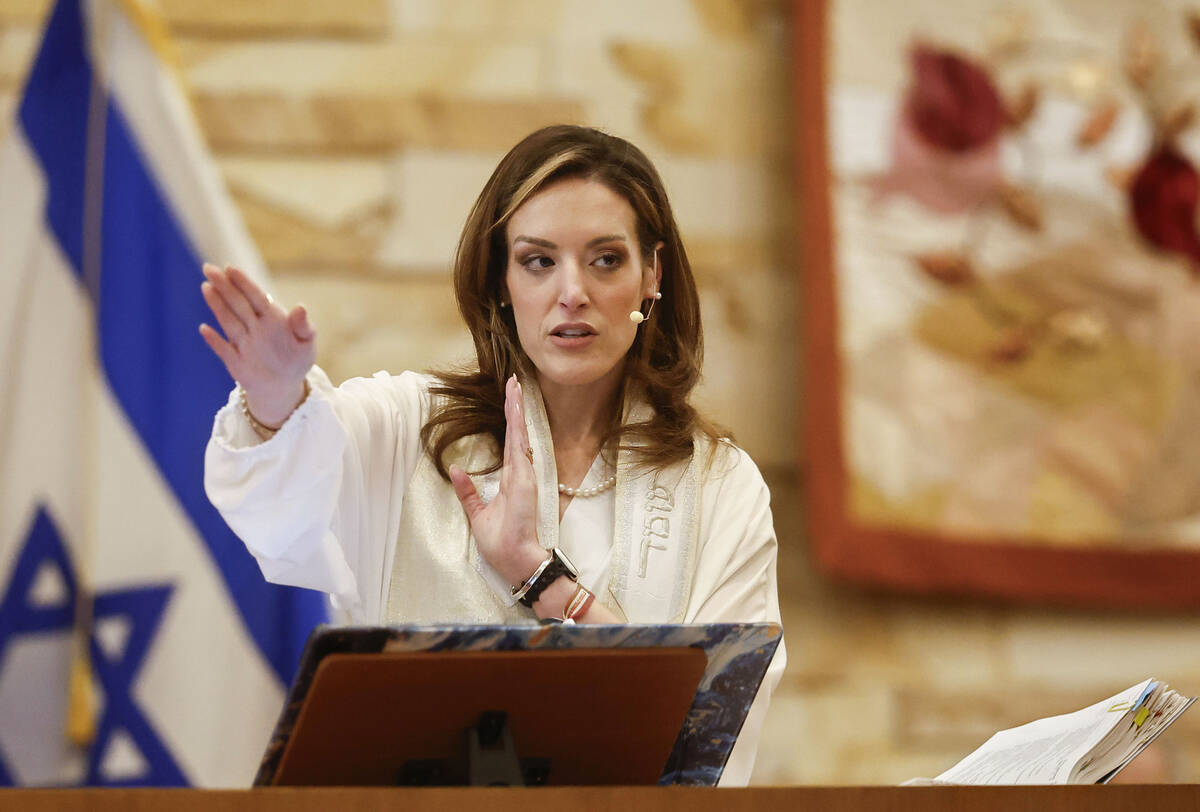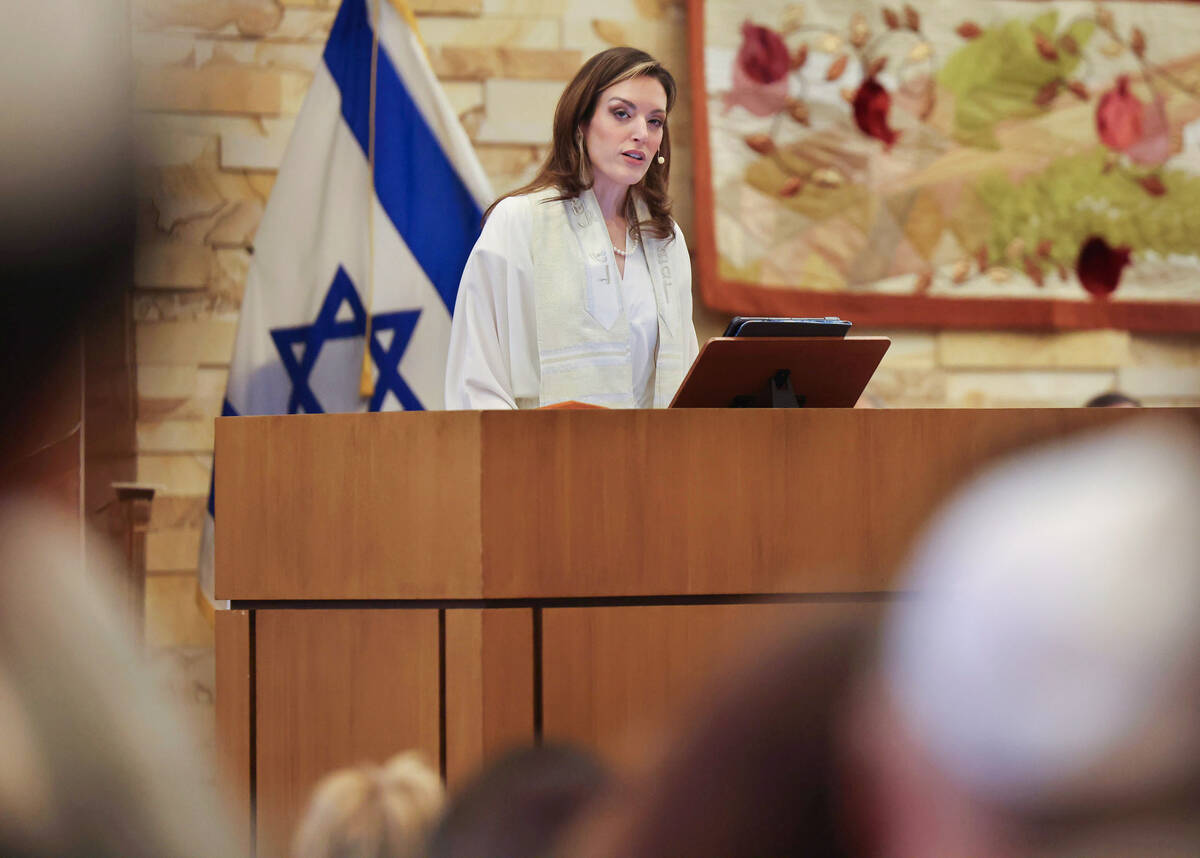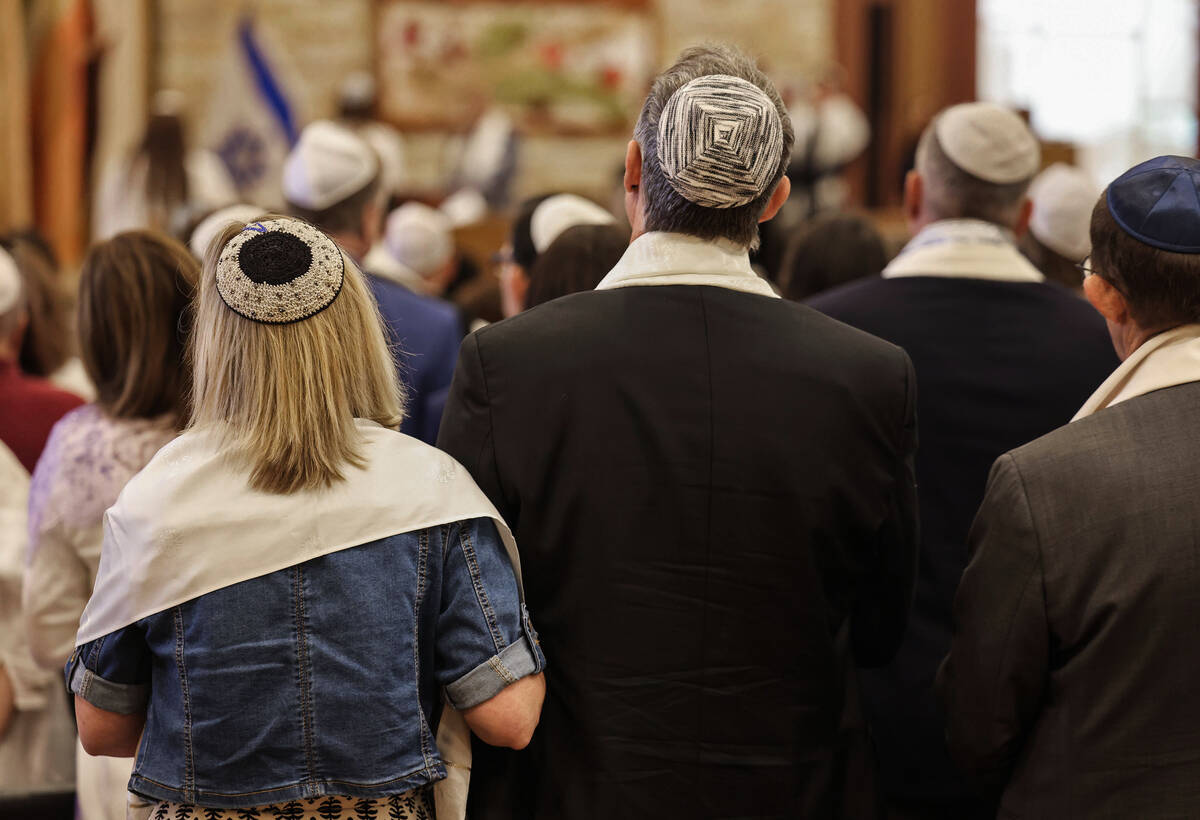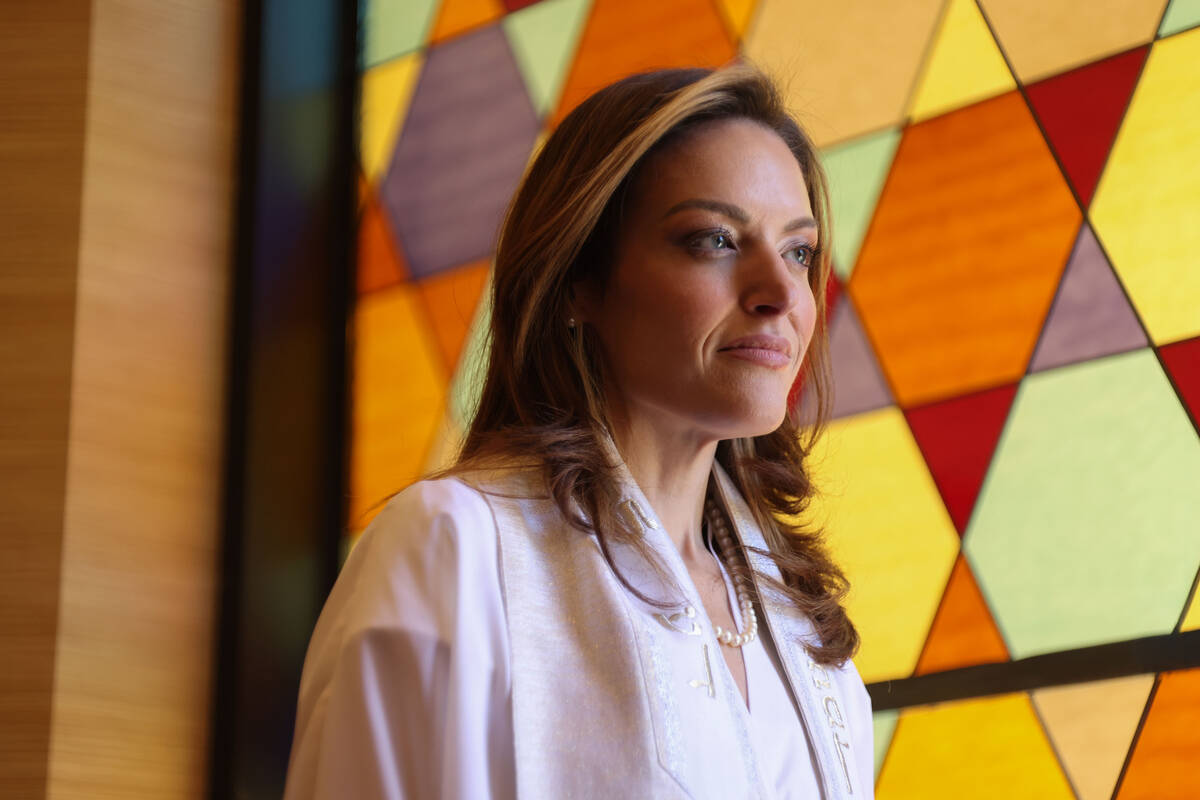‘The world is not the same place’: Oct. 7 attacks still weigh on Jewish community
It’s a bear hug of a festival, high among the most joyous of Jewish holidays, seven days of celebration with nights spent singing, dancing, rejoicing, with “l’chaim!” (Hebrew for “to life”) a common refrain.
Sukkot begins five days after Yom Kippur, a holy day defined by solemnity, atonement and repentance giving way to jubilance and release.
This year, though, Sukkot carries a painful sting for the Jewish community: It begins Oct. 7, the two-year anniversary of Hamas’ terrorist attack on Israel, when 1,200 people were murdered and 250 more were taken hostage.
“Our festivals are supposed to be times of joy and uplifting, and now it is forever marked by this horrible tragedy,” notes Rabbi Ilana Greenfield Baden of Summerlin’s Temple Sinai. “A lot of Jewish communities all over the world have been struggling with, ‘How do we carry the grief and the moment, and still honor the spirit of our holy day, not let it completely take over what we’ve been celebrating for timeless generations?’”
There are no easy answers to the question Baden poses, just a palpable sense of incredulity from her and many others that the conflict rages on despite renewed hopes for a ceasefire this past week, with President Donald Trump and Israeli Prime Minister Benjamin Netanyahu unveiling a new peace proposal. Hamas has conditionally accepted parts of the plan and agreed to release hostages, but none had been freed as of Saturday night.
“Every time we gather for services, we mark how many days it has been since Oct. 7, and we are in the 700s,” Baden says. “We knew this was going to be long, drawn out, but it’s surreal to think that we’re coming up to the two-year mark and that the war is still going on, that we haven’t figured out how to have cooler heads and saner minds prevail on all sides to bring the hostages home, to end the suffering of the innocent people in the region and to move forward. It’s tough.”
The conflict’s reverberations continue to be profound locally.
“It’s changed the trajectory of our work. It’s changed the direction of the Jewish community and what we’ve been left to deal with in the wake of the ongoing war,” says Stefanie Tuzman, president and CEO of Jewish Nevada. “It’s very much on our hearts and our minds.”
For UNLV history professor Gregory Brown, a member of the school’s Jewish Faculty Staff Group, there has been an abundance of emotions to process over the past two years.
“The experience of Oct. 7 for Jews worldwide is very personal,” he says. “Many, many people have not just an emotional tie, but direct family ties to people that were impacted. At the same time, the sort of response globally has become, I think, almost obsessive about Israel in relation to other world conflicts or in relation to other crises.
“So I think there’s been a kind of tension between feeling, on the one hand, that this is a transformative moment for the community,” he continues, “and then on the other side of that is to say, ‘Wow, I had no idea that so many Americans, so many people who didn’t have much interest in my relationship to my community previously, seem to think this is the most important issue in the world.’”
As the conflict continues, then, so does its impact, which extends far beyond the front lines in Gaza.
“Oct. 7 was a watershed in the Jewish community around the globe, in North America, here in Las Vegas,” says Rabbi Nachum Meth, of Community Kollel of Greater Las Vegas. “The horrors of Oct. 7 were just so real and so shocking to so many. That doesn’t just go away after two years. That sticks with people for a lifetime.”
‘The world is not the same place’
Every single week, they still light an extra Shabbat candle for the hostages who can’t light their own.
“We have the names and their faces up in our sanctuary. We show commemoration literally every day,” says Rabbi-Cantor Jessica Hutchings, of Congregation Ner Tamid in Henderson, Nevada’s largest Jewish temple.
“I think one of the things that we always worry about when we have a memorial — a yahrzeit, we call it — is that the further we get out from what happened, the more we forget about it,” she continues. “And while I don’t see that necessarily in the Jewish community, because we are constantly thinking of the hostages that are still trapped there, I do think on a more global stage that the attention has definitely turned away from those who are left in Gaza.”
Outside that war zone, though, Hutchings notes there are also very real concerns for the Jewish community here on the homefront.
“We’re still seeing a rise in antisemitism,” she says. “It’s very frightening, and our security is much higher now.
“I’ve had to take off my rose-colored glasses, let’s put it that way,” she continues, “to realize that while I do still feel safe in this community, because I feel like I’m in a little bit of a bubble, the reality of being a Jew in the world today is so much different than it was two years ago, before Oct. 7.”
According to the American Jewish Committee’s “State of Antisemitism in America 2024 Report,” 33 percent of American Jews say they have experienced antisemitism personally at least once over the past year, a number that rises to 41 percent among young American Jews, ages 18-29.
The FBI’s Reported Crimes in the Nation 2024 — Hate Crime Statistics notes that anti-Jewish incidents increased by 5.8 percent from 2023 to 2024, nearly double the national rate, with Jews being targeted in 70 percent of the religiously motivated hate crimes despite accounting for 2 percent of the U.S. population.
Rabbi Meth underscores those statistics by noting he has seen a turn in how the Jewish community has been treated since Hamas’ attacks.
“In a certain sense, the biggest reality check for Jews here in Las Vegas — and really Jews in North America — has been the response to Oct. 7,” he says. “Originally, it was very positive. We got a ton of support and calls from friends outside of the Jewish community, leaders.
“It was very, very heartwarming and deeply appreciated,” he adds, “but we’ve since seen a huge uptick in antisemitism, and that’s very real. That has not gone away, and that is a reality that I think most people were just not aware of. The world is not the same place.”
Moving forward without forgetting those left behind
“It’s like you’re living two truths at once.”
Rabbi-Cantor Hutchings is talking about a difficult balancing act that many in the Jewish community continue to face: acknowledging the grief caused by the ongoing war while simultaneously trying to enjoy traditional celebratory occasions as they were intended.
“Yes, we are still in mourning. Yes, we are experiencing trauma,” she says. “We live in the diaspora in Henderson or in Las Vegas, and we live proudly as Jews who are wanting to celebrate the holidays that are here and live our lives as well.”
Hence, with Sukkot beginning Tuesday, area rabbis with Jewish Nevada and other organizations have united to hold an Oct. 7 remembrance event on Oct. 16 at Temple Beth Shalom, after the holiday.
“All of the board of rabbis came together and said, ‘It’ll be more impactful if we do this together,’” Hutchings explains. “We just agreed to have one big event.”
The event will take place on the same day that the state of Israel will commemorate the second anniversary of the attacks as well.
“This year’s commemoration is, of course, about honoring the lives lost and the tragic events of that day, but also focusing on hope and resilience as we move forward,” Tuzman says. “We still have 48 hostages that are being held in Gaza, and so there will be — as we do every day, but especially at the commemoration — a call for their return. There is no moving forward until every last one of them is home.”
While the Oct. 16 gathering will be the central Oct. 7 commemoration locally, there will also be a vigil at 5 p.m. Sunday at the UNLV Alumni Amphitheater arranged by on-campus and national organizations.
“The idea behind this is that there’s one message, which is, call attention to the plight of the hostages,” Brown says, “not getting into anything other than a humanitarian statement of bringing them home. Now.”
For Rabbi Meth, these outward displays of public support for Israel and its hostages are important.
But, as he explains, there’s an inner dimension to it all as well.
“Oct. 7 impacted me,” he says. “It impacted all of us, and my response has been to double down in the sense that in the Jewish community, when we face adversity like that, our natural response has always been, ‘I’m going to look inward.’
“I’m going to look inward, because I can’t control world peace,” he continues. “I can’t control what’s going on in Israel. What I can control is being a better person. We’re gonna double down on the things that I believe in: kindness to one another, messages of optimism, of hope. We’re going to do more of that, because that’s what we do in crisis.”
Contact Jason Bracelin at jbracelin@reviewjournal.com or 702-383-0476. Follow @jasonbracelin76 on Instagram.
Local remembrances
Events being held locally in remembrance of the two-year anniversary of Hamas' Oct. 7 assault on Israel:
10/7 Vigil: 5 p.m. Sunday at the UNLV Alumni Amphitheater, 4505 S. Maryland Parkway. Stand in solidarity and remember the hostages with music provided by Tal Banker.
Marking Oct. 7: 6 p.m. Oct. 16 at Temple Beth Sholom Las Vegas, 10700 Havenwood Lane. A communal gathering featuring Israeli singer-songwriter Micha Biton, who narrowly escaped the Oct. 7 Hamas attacks with his family on their Gaza border community. He now lives as a refugee in Tel Aviv.



